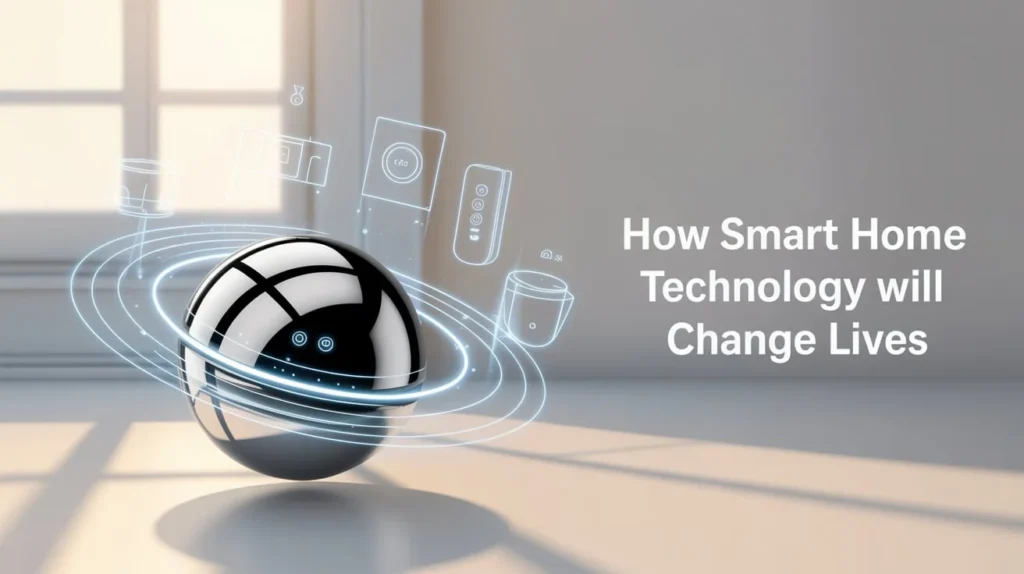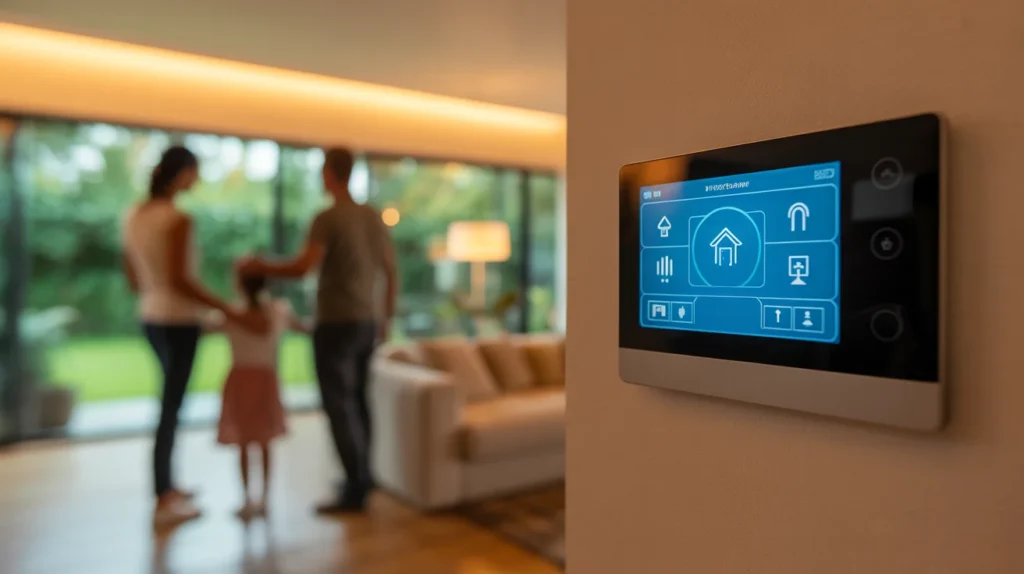Smart home technology is no longer just a futuristic idea. It is becoming an essential part of modern living. Understanding how smart home technology will change lives can help homeowners make smarter choices and improve daily convenience.
By integrating devices like smart lights, thermostats, and security systems, homes are becoming more efficient. These innovations not only save time but also enhance safety and energy management. People are now experiencing a lifestyle that adapts to their needs seamlessly.
The real power of smart home technology lies in its ability to personalize and automate tasks. From voice-controlled assistants to intelligent appliances, technology is creating homes that respond intuitively to residents. The transformation it brings is both practical and transformative.
Personalized Comfort and Automation
Smart homes make everyday life easier and more comfortable. The impact of smart home technology on lives is most evident in personal comfort and automation.
With automated lighting, heating, and cooling, homes adjust to your preferences without manual intervention. For example, a thermostat can learn your schedule and optimize energy use. Smart blinds can close automatically to block the sun during hot afternoons.
Key Feature:
- Automated lighting saves electricity by turning off lights in empty rooms.
- Smart climate control reduces energy bills and maintains comfort.
- Personalized settings make your home respond to your unique routines.
In addition, smart appliances like coffee makers or washing machines can be scheduled remotely. This allows homeowners to plan tasks efficiently and reduce wasted time.
Enhanced Security and Safety
Another major impact of smart homes is improved security. Smart cameras, door locks, and motion sensors now provide real-time alerts directly to your smartphone. This allows you to monitor your home from anywhere, whether you are traveling, at work, or running errands, giving you peace of mind and added convenience.
Smart locks prevent unauthorized access while allowing temporary guest entry. Security cameras equipped with AI can automatically detect unusual activity and notify you immediately. Smoke and water leak sensors alert homeowners to potential dangers, reducing damage and risks. These tools help people feel safer and more in control, contributing to reduced stress and greater confidence in managing their home environment over time.
Energy Efficiency and Cost Savings
Smart home technology plays a big role in improving energy efficiency. It has the ability to reduce energy waste and lower utility bills. Automated systems can monitor electricity use, adjust lighting, and optimize heating or cooling based on occupancy and time of day. This not only saves money but also supports a more environmentally friendly lifestyle.
Smart plugs and connected appliances turn off automatically when not in use, and energy monitoring apps give homeowners detailed insights into their consumption patterns. Integration with solar panels or smart grids maximizes renewable energy use. By using these tools, homes become more efficient, cost-effective, and sustainable, giving residents both financial and ecological benefits.
Health and Wellbeing

Smart home technology also promotes better health and well-being. Understanding how smart home technology will change lives includes its impact on daily habits and mental wellness.
Devices like smart air purifiers, sleep trackers, and connected fitness equipment help maintain a healthy lifestyle. Homes can monitor air quality, regulate lighting for circadian rhythm, and even suggest exercise routines.
Air Quality Sensors
Air quality sensors monitor indoor pollutants such as dust, smoke, and allergens, ensuring the air you breathe is clean and safe. By detecting harmful particles in real-time, these devices can automatically adjust ventilation or trigger alerts, helping to maintain a healthier living environment and prevent respiratory issues.
Sleep-Tracking Devices
Sleep-tracking devices monitor sleep patterns, helping to optimize room temperature, lighting, and noise levels for better rest. By analyzing your sleep cycles, these devices provide insights and suggestions that improve sleep quality, resulting in more energy and overall well-being during the day.
Connected Fitness Equipment
Connected fitness equipment offers guided workouts, performance tracking, and personalized exercise routines. By syncing with smart home apps, these devices help residents stay active, monitor progress, and achieve fitness goals conveniently from home, promoting a healthier lifestyle.
This integration encourages a healthier lifestyle, making homes supportive of physical and mental wellness.
Convenience and Connectivity
Smart home technology ensures that everything in your home works together seamlessly. From voice commands to mobile apps, controlling devices is easier than ever. Smart homes connect all systems: entertainment, lighting, climate, and security for a cohesive experience.
Key Feature:
- Centralized control via smartphones or tablets.
- Voice assistants handle tasks hands-free.
- Integration between devices allows automated routines for daily life.
Connectivity transforms homes into intelligent spaces that respond proactively. This level of convenience was unimaginable a few years ago but is now within reach.
Future of Smart Homes
The future of smart homes will bring even greater changes. AI and machine learning will enable homes to predict needs and make independent decisions.
Imagine waking up to a house that prepares breakfast, adjusts lighting, and plays your favorite music automatically. Residents will enjoy more leisure time and less stress. Homes will also become energy-independent and more environmentally conscious.
Predictive Systems
Smart home technology can learn your habits and anticipate daily routines. From adjusting lighting and temperature to preparing appliances, predictive systems save time and reduce daily effort.
Home Interaction
Future smart homes may communicate to share energy and resources efficiently. This reduces energy use, balances the grid, and creates cost-effective, sustainable living.
AI Enhancements
AI improves security, health monitoring, and comfort. Smart cameras detect unusual activity, sensors track air quality, and devices adjust automatically for a safer, healthier, and more comfortable home.
Smart home technology is not just about convenience, it is about creating a lifestyle that adapts intelligently to human needs.
Conclusion
Smart home technology is transforming lives in multiple ways. The impact of smart home technology on lives is evident in areas such as comfort, security, efficiency, health, and convenience. Homes are becoming more adaptive, safe, and energy-conscious, giving residents better control over their environment.
As technology advances, homes will continue to evolve into intelligent living spaces. The integration of AI and IoT will redefine what it means to live comfortably and sustainably. Understanding these changes today helps homeowners prepare for a smarter, more connected future.
Investing in smart home technology is more than a luxury; it is a lifestyle upgrade that saves time, enhances safety, and promotes well-being. The future of living is here, and it is smarter than ever.

